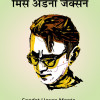

It prompted the first of Manto’s run-ins with British law – he was charged with obscenity but not convicted. One such story “ Bu” ( “Smell”) was about a sexual encounter between a prostitute and a rich young man who is intoxicated by the smell of her armpits. The historian Ayesha Jalal, (who is Manto’s grand-niece) wrote in her book about him, The Pity of Partition: “Whether he was writing about prostitutes, pimps or criminals, Manto wanted to impress upon his readers that these disreputable people were also human, much more than those who cloaked their failings in a thick veil of hypocrisy.” He usually wrote an entire story in one sitting, with very few corrections, and his subjects tended to be those on the fringes of society. In his early 20s he translated Russian, French and English short stories into Urdu, and through studying the work of western writers he learned the art of short story writing. Saadat Hasan Manto was born into a middle-class Muslim family in the predominantly Sikh city of Ludhiana in 1912. One story, ‘Smell’, was about a sexual encounter between a man and a prostitute.



A Pakistani biopic was released last September and last month in Cannes it was announced that a new Indian film will be made about the writer who has been compared to DH Lawrence, Oscar Wilde and Guy de Maupassant. He may be largely unknown in the west, but as the 70th anniversary of partition looms next year, there has been a re-emergence of interest in the life of Manto. But it is for his stories of partition that he is best remembered: as the greatest chronicler of this most savage episode in the region’s history. In his journalism, he predicted the rise of Islamic fundamentalism in Pakistan. He wrote about sex and desire, alcoholics and prostitutes, and he was charged with obscenity six times. Though his working life was cut short by an addiction to alcohol, leading to his death at 43, Manto produced 20 collections of short stories, five collections of radio dramas, three of essays, two of sketches, one novel and a clutch of film scripts. Manto was already an established writer before August 1947, but the stories he would go on to write about partition would come to cement his reputation. The partition was brutal and bloody, and to Saadat Hasan Manto, a Muslim journalist, short-story author and Indian film screenwriter living in Bombay, it appeared maddeningly senseless. The borderline was arbitrary and artificial – established in haste by a British barrister called Sir Cyril Radcliffe – and in trying to slice India along religious lines, it turned former Muslim, Hindu and Sikh friends and neighbours against each other. In the days and months leading up to the partitioning of India in August 1947, 14 million people moved and two million died as the new nation of Pakistan was created. I t was the greatest mass movement of humanity in history.


 0 kommentar(er)
0 kommentar(er)
